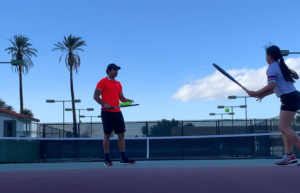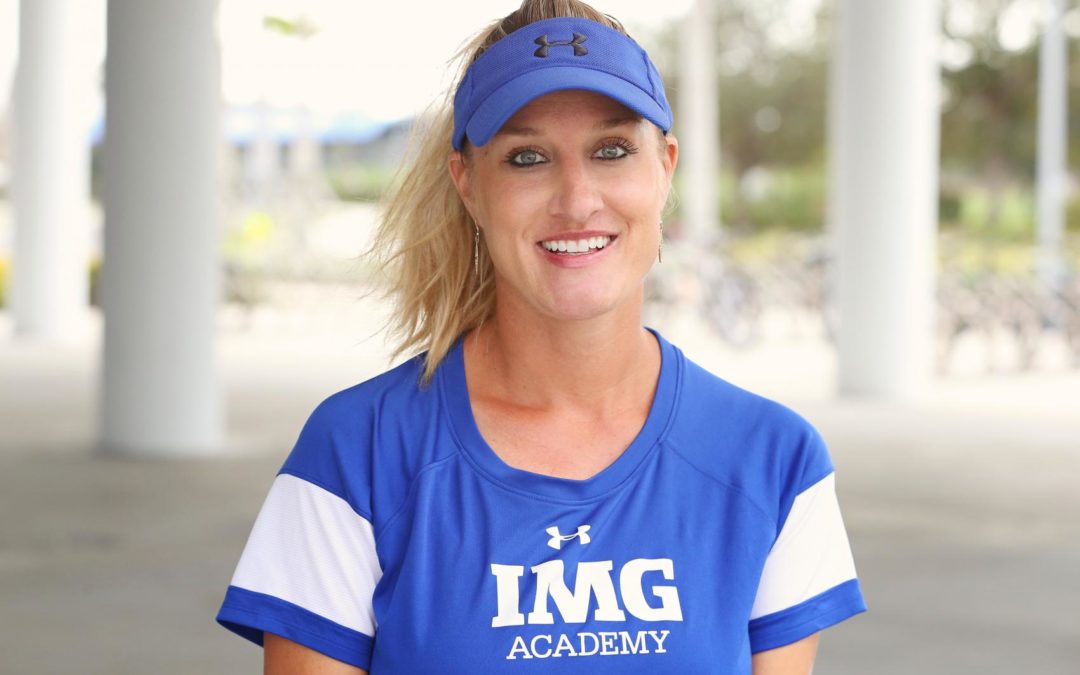Margie Zesinger’s expertise and multitude of experience has led her to a very successful career. While the job is not always an easy one, her passion for coaching has played an important role in motivating female athletes and teaching them skills that they will use for a lifetime. Coaches like Zesinger serve as role models and demonstrate behaviors that players will emulate and use both on and off the court. The WTCA had the opportunity to speak with Margie Zesinger and gain her insight on today’s coaching world and her tips for becoming the best coach you can be.
Achieving your Goals in the Coaching World
The start of any job can sometimes seem slow and tedious. Achieving a personal career goal, especially in the coaching field, does not happen overnight. We talked with Zesinger about how she got to where she is today and what advice she has for aspiring coaches. “The most important mindset for any coach is to be willing to be open and try anything. Whether your goal is to be at the Grand Slam with a pro player, or to run a college team, understand that along the way you may have to do other things to get to that final destination,” says Zesinger. “My biggest piece of advice is to be open to growing into all areas of coaching and not just your dream. You will get to your goal, but be open to learning new things and new parts of the industry. Never be shy and back away from an opportunity, instead have a willingness to learn new things.”
Margie also emphasized how the lessons we teach to our players on the court can be applied to our own ambitions as coaches. “You are always going to have obstacles, but those obstacles are a crucial part of the process because they make you a better coach. Look at the obstacles in a positive way. Just as we tell our players “learn from your losses”, as a coach you have to continue to learn from your own challenges.”
Dealing with obstacles
From educator and motivator, to supporter and psychologist, the role of coaching includes many functions. While the job is often rewarding and gives you the opportunity to mold individuals and change lives, the task is not always easy. Every coach will face at least one player in their career who challenges them and creates a coaching road block. “When you have a challenging player or a player who isn’t responding, take away your judgement and realize that not every athlete is going to be a ‘great attitude, working hard all the time’ type of individual. Our job as coaches is to figure out a way to bring out the best in them and help the player grow as a person and as a competitor. If you are working with a difficult athlete, look at it as a challenge and try to think outside of the box.”
Margie also discussed how coaches can be quick to say something, but sometimes it is more about what you don’t say. “Some players like to communicate right there on the spot, while others hate being addressed right after they step off the court. Coaches have to figure out how to effectively connect with the player in order to coach them properly.”
Figuring out what works for an athlete also includes figuring out who they are as an individual. “Working in the industry, you’re facing a lot of players. As a coach, you have to understand your player not only as an athlete, but also as who they are as a person. Understand their background, what culture they come from, what their family life is, and their overall lifestyle off the court. Every player is different and getting to know each of them individually is crucial in today’s generation,” says Zesinger. For coaches who work with multiple athletes, developing a strong connection with every player can be twice as hard, but is just as crucial. “Coaches have to know how to communicate with each of their athletes. Even if you are in a group setting, you have to know how to coach each athlete individually.”
In tennis, like any other sport, the role of a coach is a crucial one. From her advice on achieving personal goals as a coach, to her knowledge with overcoming obstacles and working with challenging players, Margie Zesinger’s valuable insight is something that all coaches can benefit from.

